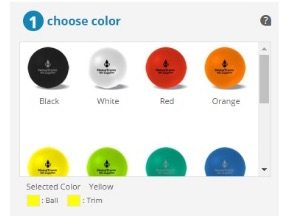Many B2B executives believe that ecommerce cannot fit their business. They say, more or less, “Ecommerce doesn’t work for us. We use a consultative sales process. Helping customers find the right solution is complex.”
But B2B companies that don’t embrace digital will lose opportunities. Increasingly, buyers prefer to research online before speaking to a salesperson. A digitally savvy competitor could disrupt the market and cause large sales decreases for legacy companies, those that do not evolve.
Consider taxicabs. Uber has greatly disrupted that industry. Many believed that digital technology did not apply to taxis. They were wrong.
To be sure, B2B businesses have complex sales cycles. It’s an ecommerce challenge and an opportunity. A complex sales process is harder (but not impossible) for Amazon to replicate. And ecommerce is an opportunity to demonstrate value. Instead of thinking about how it cannot work, focus on how it can provide a better experience for current and prospective customers.
… B2B companies that don’t embrace digital will lose opportunities.
A Better Experience
When thinking about improving the B2B customer experience, ask how you could make the purchasing process easier, faster, and more efficient.
- Easier. The process of shopping for B2B items is not easy, typically. If it were, salespeople wouldn’t be necessary. Buyers want to simplify finding and buying the right items. A digital experience can provide the information they need when they need it.
- Faster. Speed matters. Amazon can deliver a product the next day, if not the same day. Minimizing the time a customer has to wait for your product is valuable. Digital technology can streamline order fulfillment.
I’m aware, for example, of a textile manufacturer that sells to craft businesses. The manufacturer grew sales from businesses that had purchased from lower-cost overseas suppliers because the purchases would ship the same day and arrive much faster. This was possible due to integrating data between the manufacturer’s ecommerce platform and fulfillment system — for orders entered by customers or sales reps.
- More efficient. The value of B2B ecommerce goes beyond new customers. Reorders, replacement parts, and invoice payments are all expedited online.
Sales Support
Here are common ways, in my experience, that ecommerce helps sales personnel.
- Strategic content, marketing automation, and lead scoring. A robust website includes content that answers questions of customers during their purchasing process. There are often many questions, and frequently there are many people involved in the B2B buying process. Use calls-to-action to ask for an email address in return for access to higher value content. Then you use a marketing automation tool — such as Pardot, HubSpot, Marketo — to score users based on their behaviors on your site. Trigger your sales team when the prospects are showing signs that they are ready to buy.
- Request a quote. A “request for quote” form can be simple (ask only for a name, email, and phone number, plus a few questions about what they need and how to follow up) or it can be more involved (buyers add products to their request). The latter is similar to adding products to an ecommerce shopping cart, but instead of paying for the order, the buyers submit it for a quote. This can all be done electronically, with no need for a phone call, or it could require a phone call to ensure the quote is accurate. The key is to streamline the process for your customers — to make it easier, faster, and more efficient.
- Draft order. Another way to support your sales process is via an online draft quote. This is where your sales team creates a draft order using a login to the administration section of your ecommerce site. They can build the order with custom pricing and shipping costs and then email it to that customer, who then logs in to the site and pays for the order electronically. Your sales team could do this after receiving a request-for-quote notification, or after speaking with a customer who has requested an order.
Many buyers prefer to receive an email and pay for the order online. They can confirm the accuracy of the order, and they are more confident in the security, versus reading credit card or bank information to a salesperson.
- Configure price quote solutions enable customers and sales personnel to build quotes based on predetermined rules. This facilitates faster quotes to customers, as it streamlines the internal pricing and approvals process. It allows greater internal control over margins and ensures that quotes are consistent. CPQ vendors include Apptus, Salesforce, Vlocity, SAP, and Oracle.




